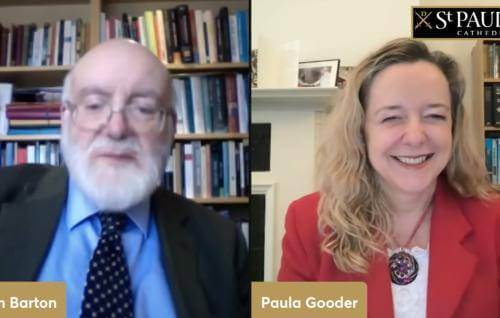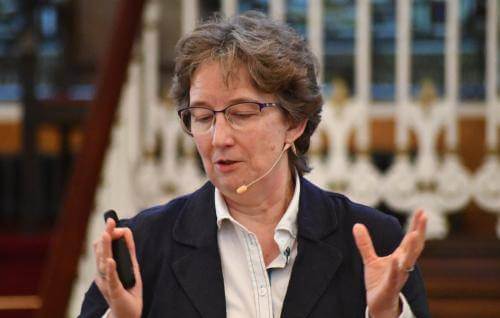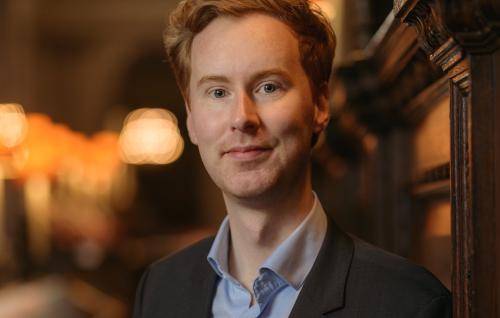Christianity comes in three varieties
Christianity comes in three varieties
Linda Woodhead explores varieties of Christianity, illustrating each with an intriguing figure from the history of Christianity in Britain.
1. Biblical Christianity
In trying to explain Christianity to undergraduates studying the sociology of religion, I have learned to break it down into three main varieties. Each is ancient, each has roots in scripture, but each is different. In this series I will give a distillation of what I mean, illustrating each type with an intriguing figure from the history of Christianity in Britain.
William Carey arrived in Serampore, a small town north of Calcutta on the Hooghly river, in 1800. A Northamptonshire cobbler, schoolmaster, and Baptist missionary, Carey exemplifies the audacious energy of Biblical Christianity, perhaps the most familiar of the three varieties of Christianity I will explore.
Carey’s aim was to save the East. It was obvious to him that he should do so with words. He set to work translating the Bible into more than six languages, and he imported the first steam engine to India to print them. He built a college, schools, and a botanic garden. He was an avid amateur scientist and a champion of modern progress.
Carey’s model was the Protestant Reformation of the 16th century, when the invention of printing and the first translations of the Bible into modern languages led to a religious revolution in Europe. Subsequent reformers like Carey were intent on spreading moral, religious and scientific progress even further afield. EXPECT GREAT THINGS FROM GOD, ATTEMPT GREAT THINGS FOR GOD was his motto.
Today this variety of Christianity is as potent as ever. It has shaped the USA, including the evangelicals who helped elect Donald Trump. Like Carey, they believe in Biblical truth, the hardworking common man, the nuclear family, and the superiority of Western civilization.
In India, ironically, Biblical Christianity had less success, but in other parts of Asia, Africa and South America, it has flourished. In its fundamentalist forms it puts all the emphasis on the Word; in its Pentecostal or Charismatic versions, it celebrates both Word and Spirit. Biblical Christians often call themselves ‘evangelicals’ or ‘born again’.
The greatest success of this version of Christianity in our lifetimes has been persuading much of the non-Christian world that it is the one true Christianity. It is not, and in my next reflections I will explore two other varieties, the sacramental and the mystical.
2. Mystical Christianity
The second variety of Christianity is the mystical version. Mysticism involves direct individual experience of the supernatural. For the mystic, the otherworldly can be just as important as the worldly.
From the desert fathers of the early church onwards, Christianity has had mystics and monastics who have withdrawn from the world alone or in community to experience God. Some have existed within a Church, others have existed on the boundaries—and still do.
Some Christian mysticism speaks about union with the ‘One’. This is a wordless communion in which the soul is possessed by God. The statue in Rome of St Theresa in ecstasy depicts such ‘high’ mysticism.
More common across the centuries, is ‘low’ mysticism. Here individuals encounter spirits of different kind: saints, demons, spirits of the dead, spirits of place, and so on.
Protestantism has not been as hostile to things as is often imagined. John Wesley, for example, defended belief in witches, ghosts and other supernatural entities. If you lose a sense of the supernatural, he said, you will lose Christianity itself.
The novels of Charles Williams (1886-1945) allow us to experience a Christian mystical sensibility that is both high and low, from the inside. Along with C.S.Lewis and J.R.R. Tolkein, Williams was one of the ‘Inklings’ who met regularly in Oxford. In his last novel, All Hallows Eve, the central characters are both dead. The reader views the world through their eyes, as one condemns herself to hell through her actions, and the other touches eternity. It is a fantasy supernatural thriller like no other.
For some Christians, mystical experience is as natural as breathing. For others, it is entirely alien. What is intriguing is that even in this supposedly secular age, mystical experience seems as common—or uncommon—as ever.
3. Societal Christianity
The third variety of Christianity is the societal one. Mystical Christianity involves direct individual engagement with the spiritual. Biblical Christianity finds the truth in scripture. Societal Christianity is invested in society and social practices.
At Ripon College Cuddesdon, founded in the 19th century to train clergy in a societal version of Anglicanism, it is said that the college chamber pots used to be decorated with a verse from 2 Timothy: ‘Guard the Deposit’.
Whether the joke is true or not, that verse is apt for societal Christianity because it values what is passed down from generation to generation. It is not enough to skip back to the Bible and leave out the intervening pages of church history.
Unlike mystical Christians, societal ones are sceptical about approaching the divine directly. For them, liturgy, sacrament, and symbol offer bridges to God. Beautiful buildings, art and flowers are not just ‘things’, they are sacramental.
In her Civil War novel, The White Witch, Elizabeth Goudge (a major influence on J.K. Rowling and the Harry Potter books) tells the story of an Anglican parson forced to strip out his church to conform with Puritan demands. He refuses, not because he thinks that God cannot be worshipped without vestments and The Book of Common Prayer, but for another reason:
It was that the ritual of the Church of England was her ritual. To forsake it was to forsake her, and the Church of England was for him the path upon which the light shone.
Such emphasis on the importance of a Church per se and its connection with a people, is a sure sign of societal Christianity. It can take vastly different forms, from the martial and nationalistic Orthodox Church in Russia today, to the liberal and self-critical Church of Denmark.
4. Inner Christian conflict
I have suggested that Christianity has three main varieties, the societal, mystical, and Biblical. If by this point you are thinking ‘but can’t they be combined?’ you are asking the right question.
Individuals can certainly be influenced by more than one variety. I would describe myself as a mystical-societal Christian, for example. Movements can also combine, like charismatic Christianity which is both Biblical (its ultimate authority) and mystical (experience of the Holy Spirit).
Sociologically, however, the types remain distinct because they have different ways of relating to wider society.
Thus the Biblical type draws a distinction between those who accept Biblical truth, and those who do not. Some are saved, elect, born again, or simply ‘Christian’, and some are not. The job of the church is conversion. It must draw people in.
The societal type, by contrast, has looser boundaries with society. It believes that Christ can be found outside the temple as well as within. It funds chaplains and hospitals and schools, not just churches. Its aim is a godly society.
The mystical type is focused on the individual. Ritual, community and scripture may all be channels of mystical experience, but that is all. This makes church more and fragile than for the other varieties, but it can nevertheless be enduring, like the Quakers.
The Church of England is unusual as a church that has tried to accommodate all three varieties, with varying degrees of success. Since the 1980s, the Biblical type has become dominant, and the societal has been on the defensive, while the mystical keeps its head down.
In the short term, the internal variety of Christianity may seem to be a source of confusion and conflict. Over the long term, however, it has been a source of creative tension and inner renewal.








